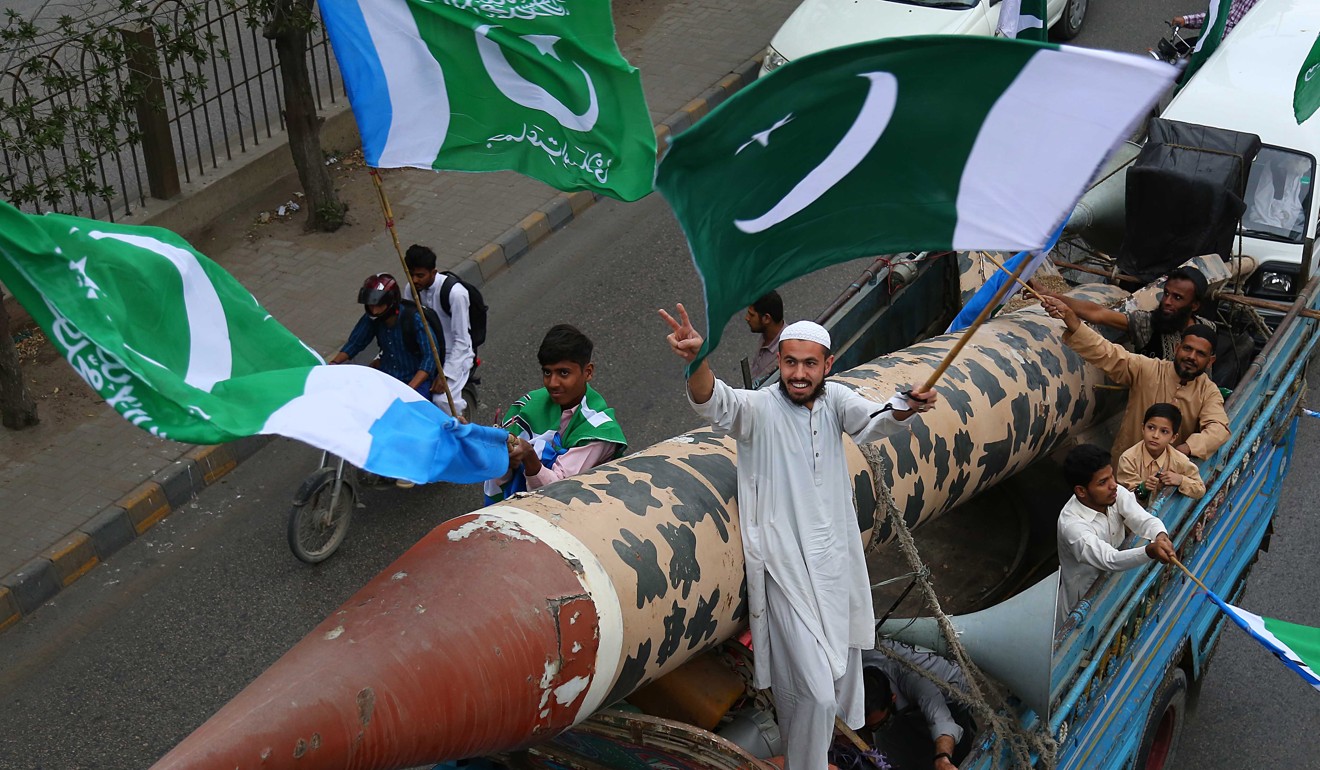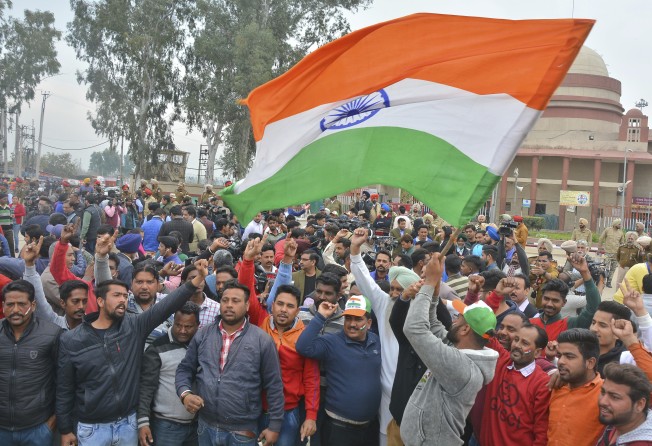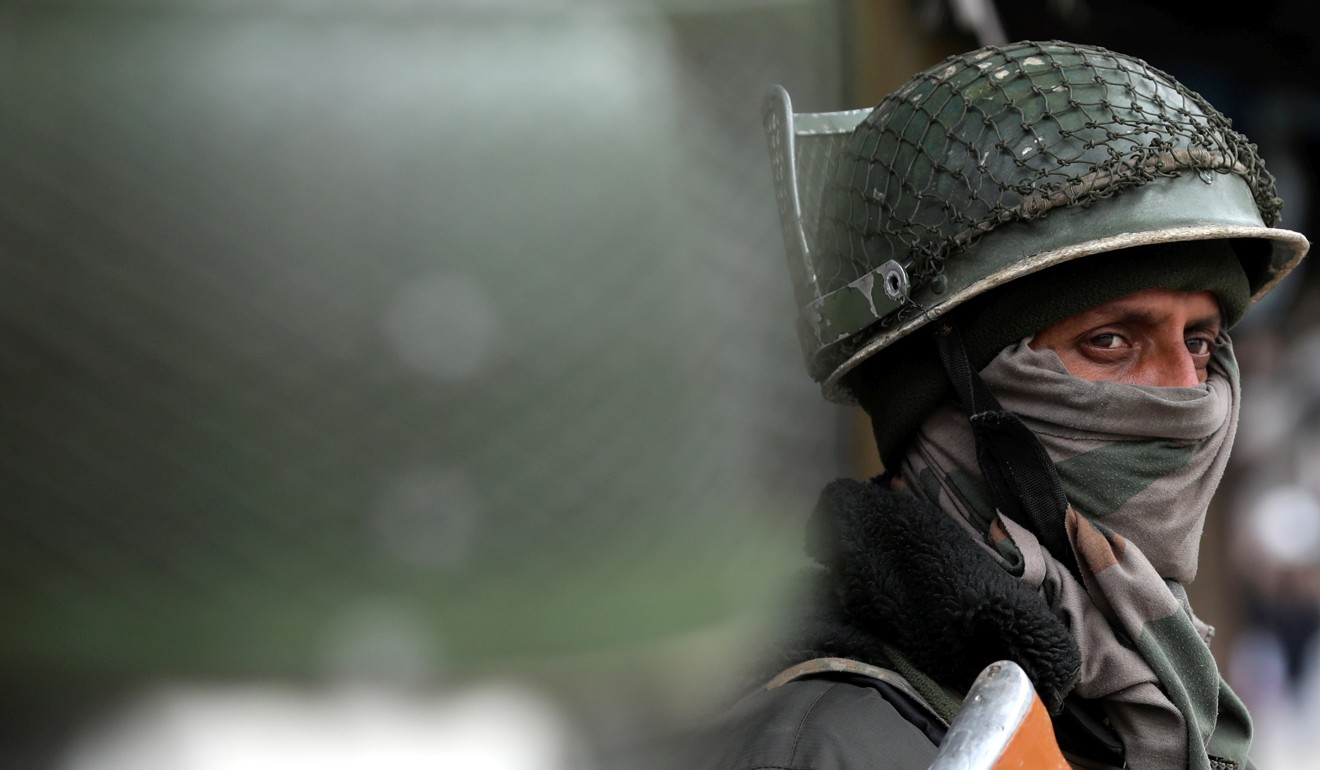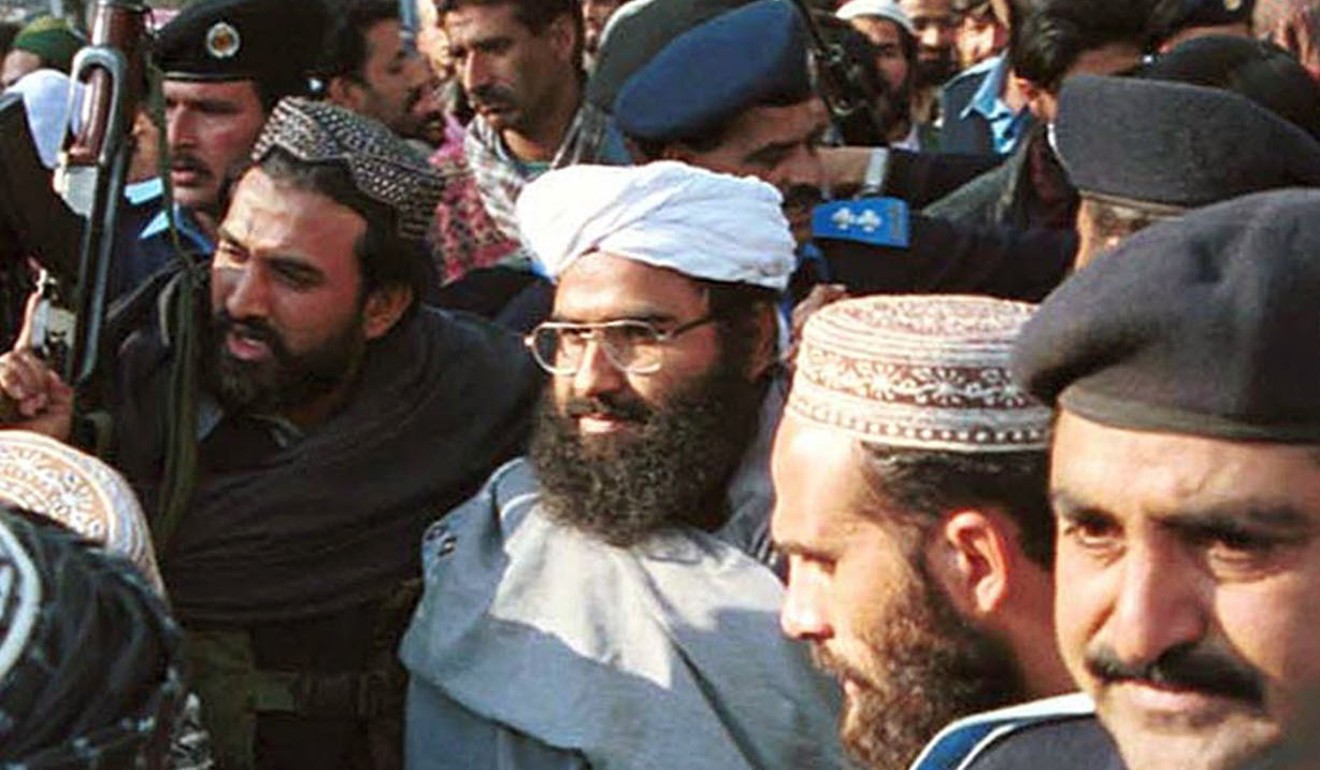
India-Pakistan crisis: Modi is gambling with nuclear stakes
- The tensions between nuclear armed neighbours India and Pakistan may have eased slightly, but misjudged political rhetoric could still force them into a dangerous spiral

The face-off between New Delhi and Islamabad may appear to be winding down, but domestic rhetoric in India is only rising. On Thursday, after Pakistan announced the release of a captured Indian pilot, Prime Minister Narendra Modi made a crude pun to an audience of scientists in Delhi: “This was just a pilot project. We were just practising. Now we will carry out the real thing.”
For Modi, the personal political stakes could not be higher. As India and Pakistan edged closer to full-blown conflict, 21 opposition parties came together to publicly criticise the “blatant politicisation of the sacrifices made by our armed forces by [the] leader of the ruling party”. Political gamesmanship could still force the situation to spiral into full-scale hostilities.

But for now, the tensions appear to be falling, beginning on Thursday afternoon when Pakistani Prime Minister Imran Khan announced in Islamabad that the Indian Air Force wing commander who had bailed out over Pakistani-controlled territory the day before would be handed back to India on Friday.
New Delhi reciprocated within hours, with a statement read out by a senior Indian military officer that committed the country’s army to “maintaining peace and stability in the region”.
The statement reserved the right to “continue to act against agencies who harbour inimical designs against India”, but the prospect of a full-blown shooting war between the two nuclear-armed adversaries is clearly receding.
International interlocutors, such as the United States, have played a role in brokering the climbdown. Earlier on Thursday, after a summit meeting in Vietnam, US President Donald Trump revealed there would soon be good news about the India-Pakistan crisis.
Adding to the pressure to calm tensions was China, a long-time supporter of Pakistan, which spoke out on Thursday about the need to respect sovereignty and warned against actions that violate international norms.
The crisis was triggered on February 14, when a suicide bomber from Pakistan-based militant group Jaish-e-Mohammed (JeM), drove a car packed with explosives into a convoy of paramilitary police in Indian-administered Kashmir, killing at least 40. Faced with a tricky election next month, Indian Prime Minister Narendra Modi publicly vowed retribution.
On Tuesday, Indian warplanes crossed into Pakistani airspace and bombed a JeM camp in Balakot, in the province of Khyber Pakhtunkhwa. The Indian Air Force claimed to have killed more than 300 militants, while Pakistan said there were no casualties.
Even so, the incursion 80km over Kashmir’s de facto border, known as the Line of Control, by Indian fighter jets raised embarrassing questions for Pakistan’s politically powerful military, leaving it with little choice but to respond.
On Wednesday, Pakistani aircraft shot down an Indian fighter jet, with the pilot bailing out over Pakistan-administered territory and being taken captive.
He was to become a useful bargaining chip in Islamabad’s repeated calls for de-escalation.
The difficulty came in convincing New Delhi. Modi’s Bharatiya Janata Party, which has taken a tough line against attacks from Pakistan-based groups, could not afford in an election season to be seen as backing down, especially given the public outcry.

Modi’s government also faced tough questions over whether it had achieved its strategic objectives, which represented a departure from the country’s long-held doctrine of “strategic restraint”.
Pakistan has denied the air strikes actually caused the casualties that India claimed, a narrative which has been picked up in several international media reports.
Ultimately, New Delhi’s decision to de-escalate will have rested on its conviction that it had sufficiently demonstrated its resolve to punish Pakistan for terrorist attacks from groups based within its borders. Whether the Indian Air Force hit its targets or not, it demonstrated its ability to strike deep within the neighbouring country.
For India, the central question remains: will Pakistan take visible and verifiable measures against the jihadi groups that operate out there such as JeM and Lashkar-e-Toiba?
New Delhi has, as a condition for de-escalation, demanded Islamabad take action against these groups.
Yet that would require an unlikely about-turn by the Pakistani security establishment, which has already signalled its reluctance. Asked by CNN on Thursday whether JeM chief Masood Azhar was in Pakistan and would be detained, Pakistani Foreign Minister Shah Mehmood Qureshi confirmed that Azhar was in the country, but said he “is unwell to the extent that he cannot leave his house” and that the country’s judiciary would need further evidence of his guilt before a prosecution could go ahead.

Over the years, New Delhi’s lobbying has resulted in many Pakistan-based militant groups and their leaders being proscribed internationally. But Indian efforts to impose a United Nations terrorist designation on Azhar have been stymied by China, which has blocked the move three times on technical grounds.
On Wednesday, to encourage India to de-escalate tensions, the US, Britain and France proposed that Azhar be blacklisted by the UN. New Delhi will be watching to see if China drops its objections.
A worrying dimension to this crisis has been the role of the media and social media in inflaming jingoism and aggression on both sides of the border. With the potential for escalation already high, the flames of hatred fanned on social media from both sides have made the crisis progressively more difficult to control. ■
A former Indian Army colonel, Ajai Shukla is an analyst and commentator on defence and security affairs